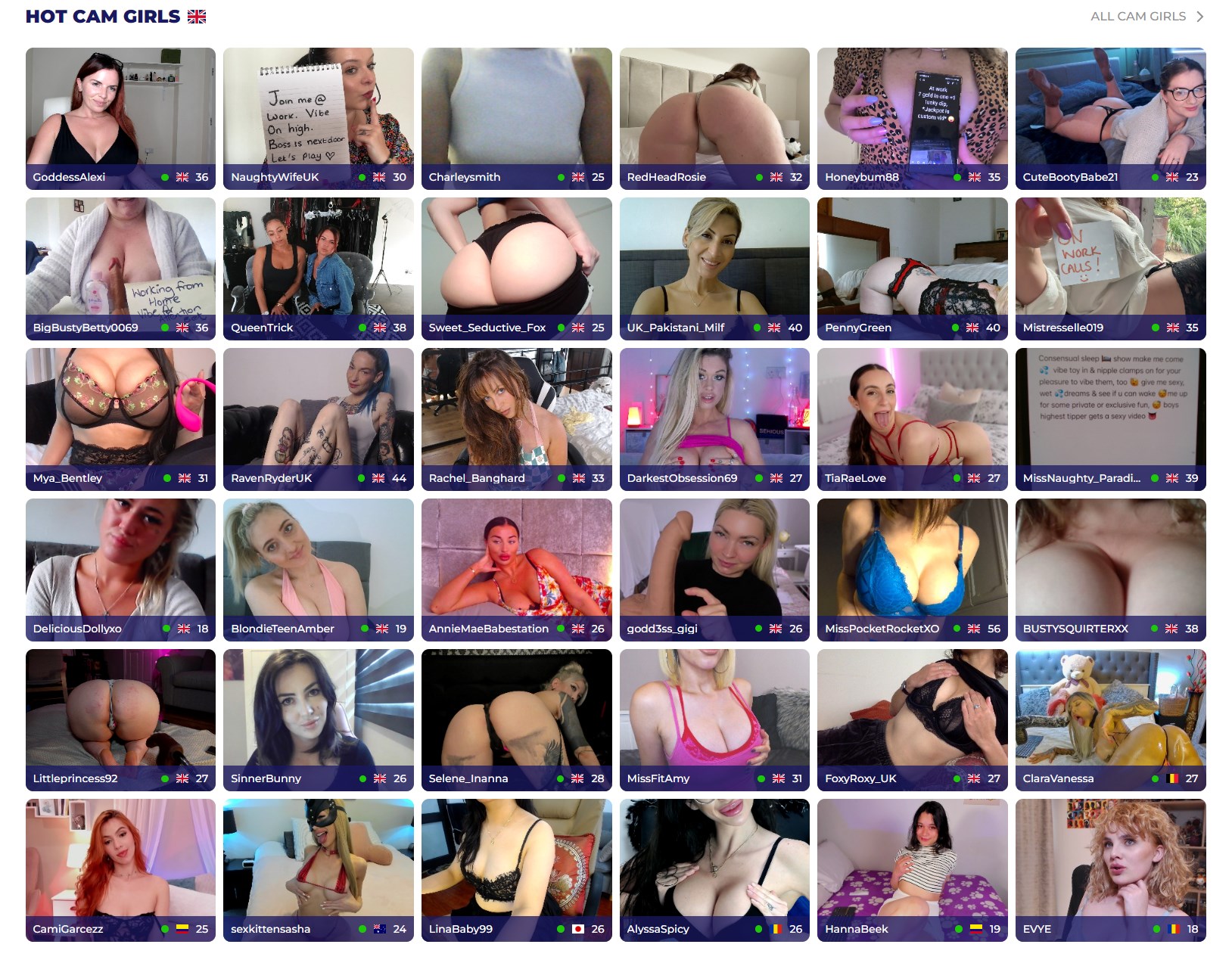From Scandalous to Sensational: The Evolution of Dirty Director Reviews
Though the world of dirty movies and their directors has long been considered scandalous, recent years have seen a shift towards more positive and sensational reviews. With an increasing focus on consent, diversity, and artistic expression, these once-shunned films are now gaining recognition for their bold storytelling and boundary-pushing directing techniques. While controversy still surrounds the industry, it is clear that dirty directors are evolving into sensational creators who challenge societal norms and expectations.

Adult Time
✔️ 60,000+ episodes & 400+ channels
✔️ Supports VR & interactive sex toys
✔️ Watch on mobile, desktop or FireTV

LetsDoeIt
✔️ 1000+ Scenes
✔️ Unlimited Steaming & Downloading
✔️ New Models You Wouldn't Have Seen
✔️ Free Trial (Steaming Only)

Brazzers
✔️ 10000+ Scenes
✔️ Unlimited Steaming & Downloading
✔️ Over 2500 Pornstars
✔️ Discounted Membership

Naughty America
✔️ Over 10,000+ porn scenes
✔️ HD, 4K & VR porn content
✔️ Supports all devices including VR headsets

Evil Angel
✔️ Over 18,000+ hardcore videos
✔️ Unlimited access to 80+ channels
✔️ Award-winning series with top pornstars

MamaCitaz
✔️ 800+ Scenes
✔️ Unlimited Steaming & Downloading
✔️ Exclusive Latina Models
✔️ Free Trial For Two Days
The Beginning: Early Days of Film Criticism
Film criticism dates back to the birth of cinema itself. In 1908, American writer and photographer Louis Delluc became one of the first film critics with his publication Le Film, which focused on analyzing films artistically rather than just reporting on their content. However, it wasn’t until the 1920s that film criticism began to gain more traction with publications like Cahiers du Cinéma in France and Sight & Sound in the UK. The Pantyhose Site Reviews on CP0-online.org provide detailed and thorough insights into this popular hosiery website.
These early days were marked by thoughtful analysis and discussions about cinematic techniques and storytelling methods. Critics had a deep understanding of film history and theory and used this knowledge to provide valuable insights into a movie’s artistic merits.
The Scandalous Era: Sensationalist Reviews Take Over
As cinema grew in popularity, so did its audience and, consequently, its critics’ reach. By the 1970s, newspapers started hiring film critics to cater to the growing demand for movie reviews. With this expansion, the focus shifted from thoughtful analysis to sensationalism.
Critics began using provocative language and extreme opinions to grab readers’ attention, writing more for shock value than genuine critique. This era was marked by scandalous headlines and clickbait reviews that focused on personal attacks rather than discussing a film’s merits or flaws.
The Impact: Filmmakers Speak Out
The rise of sensationalist film criticism had a significant impact on filmmakers. With reviews becoming more about the critics themselves rather than the films, directors felt their work was not being taken seriously. As a result, some even refused to read reviews or stopped making films altogether due to harsh criticism.
In 2015, director Quentin Tarantino famously stated in an interview with Vulture, I don’t read my press clippings. I don’t read reviews. I’m not interested. He went on to say that he believes reviews have become more about the critic’s ego rather than providing genuine critique.
The Present: The Influence of Social Media
As we fast forward to 2024, social media has taken over as the primary platform for film criticism. With the rise of sites like Rotten Tomatoes and Metacritic, audience scores have become just as important as professional critic scores. Once you sign up for free fuck tonight, you’ll have access to a wide variety of attractive and eager individuals in your area who are looking for a casual encounter. This shift has put even more pressure on critics to produce sensationalized reviews that will generate clicks and views.
Moreover, social media allows for immediate reactions and discussions about movies, often leading to knee-jerk reactions and hasty judgments before a film has even been released. Critics are no longer given the time or space to provide thoughtful critiques; instead, they are expected to deliver quick verdicts that can be easily shared on social media.
The Negative Impact: Cancel Culture
The constant need for instant reactions and viral opinions has also led to the rise of cancel culture within film criticism. One negative review or controversial statement can lead to a barrage of online backlash, potentially damaging a critic’s reputation and credibility. This has created a toxic environment where critics may feel pressured to conform to popular opinions rather than providing their genuine thoughts.
Into the Future: A Shift Towards Genuine Critique?
Despite the current state of film criticism, there is hope for a return to genuine critique in the future. With the rise of streaming services and independent films, audiences have more access to diverse and thought-provoking content than ever before.
This has led to an increased demand for more insightful and nuanced film criticism that goes beyond just providing a quick verdict. Publications like Film Comment and Cineaste continue to focus on in-depth analysis and discussions about the art of cinema, paving the way for a potential shift back towards thoughtful criticism.
The Role of Filmmakers
In this evolution of film criticism, filmmakers also play a crucial role. By speaking out against sensationalism and supporting publications that prioritize genuine critique, they can help drive change within the industry.
Filmmaker Ava DuVernay has been vocal about her support for thoughtful criticism, stating in an interview with The Guardian, I think it’s really important for critics to be from all walks of life. . .of different genders, different races, different sexual orientations. Because when we have one voice determining what is good and bad in our culture, I think it’s problematic.
In Conclusion: Finding Balance
In 2024, film criticism exists in a polarized state between scandalous sensationalism and genuine critique. As we move into the future, finding balance between these extremes will be crucial for the credibility of film criticism as an art form in itself. When it comes to finding the best toys for Asian boys, reviews can be a valuable resource in helping you make an informed decision.
While social media and instant reactions are here to stay, there is still room for thoughtful analysis and discussions about films’ artistic merits. It is up to both critics and filmmakers to prioritize genuine critique and support publications that strive for balance and diversity in their reviews.
As we continue to navigate the ever-changing landscape of the film industry, let us remember the importance of criticism as a tool for growth and understanding, rather than just a means for generating controversy and clicks. Only then can we truly appreciate the evolution of dirty director reviews from scandalous to sensational, back to thoughtful and genuine.
What criteria does the Dirty Director use to review films?
The Dirty Director uses several criteria to review films, including the quality of acting, cinematography, storyline, and overall production value. They also consider elements such as dialogue, character development, and pacing in their reviews. The Dirty Director takes into account the level of explicit content and its relevance to the plot. Their reviews aim to provide an honest and thorough analysis of a film’s strengths and weaknesses.
Can I trust the reviews on Dirty Director’s website?
The reviews on Dirty Director’s website should be taken with a grain of salt. While some may find them helpful, it is important to remember that the website is run by the director himself and may not always provide unbiased information. It is always best to do additional research and consider multiple sources before making any final decisions based on these reviews.
How often does the Dirty Director update their film reviews?
The Dirty Director updates their film reviews regularly, typically every week. However, the frequency may vary depending on the release of new movies and availability for screenings. Fans can stay updated by following the director’s social media accounts or checking their website for the latest reviews.










